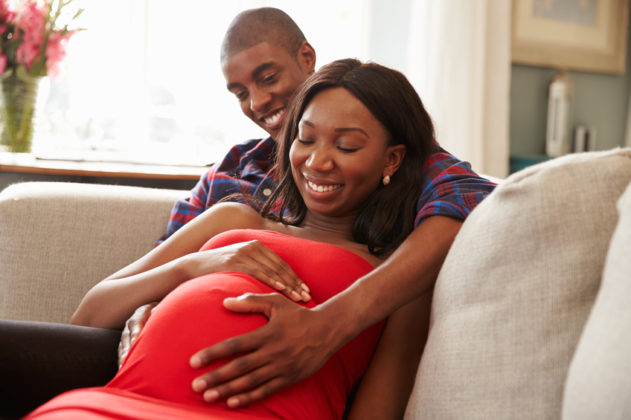It would still be my body making the baby, it just wouldn’t be my DNA.
More and more, it seems that honesty and openness are the keys to finding peace and acceptance. And for many women, infertility is one of those topics that is beginning to come out of a dark, secret place. While in the past, for example, women who miscarried often suffered in silence, now those who are willing to share can find a vast support system of women with a common bond.
But many times, couples still carry the silent burden of infertility. As a woman who has gone through it, talking openly about my egg donor procedure has helped me connect with others who are dreaming of a family.
To say going through infertility is emotional is an extreme understatement.
And if you have ever considered using an egg donor, you may have already experienced some of the desperation and frustration I felt when, at age 32, my doctor diagnosed me with unexplained infertility. Through four years of marriage, each month presented a new chance followed by the dashing of our hopes. My husband and I tried intrauterine insemination and a few rounds of in vitro fertilization. I was elated when, after feeling so betrayed by my body, I made plenty of embryos. But, in retrospect, I wish we had educated ourselves more on laboratory quality as the facility froze the embryos on day three, instead of at days five to seven, when they tend to perform better. In any case, elation turned once again to grief; the IVF did not work and I was still not pregnant.
If you are at this point in your journey, questioning your resolve to start or grow your family is common. My husband and I persevered, though, and welcomed our first child through adoption. When a second adoption never came through, after six years of visiting and fighting for a girl in Guatemala, we found new hope for growing our family through an egg donor.
Even armed with the information that my fertility was reduced after age 35, it still took me a year before I was ready to move forward. Speaking with people going through infertility, I have learned that the need to grieve and make peace with our genetics is normal. Most women need to take time to grieve that their body will never carry a genetic son or daughter. Learning, for sure, that you simply do not have very many eggs left or that your eggs are not viable can be a blow to many women’s feelings of self-worth, when, for better or worse, motherhood is tied so intrinsically to womanhood.
While it helps tremendously to accept that you cannot control your body, one can regain control in certain aspects of the process, from allowing the incredible technology available to assist you to choosing an egg donor that fits your needs. Even the process of learning to give yourself injections in preparation for the procedure can be empowering. I also felt better about the process when I understood the difference between a biological child and a genetic child. It would still be my body making the baby, it just wouldn’t be my DNA.
Choosing to go through IVF with an egg donor was, for me, a mix of excitement and trepidation. On the one hand, after using hormones to prepare my body and allowing a long needle to insert cultured embryos into my uterus, I might finally be able to experience pregnancy—a dream several years in the making. On the other hand, the embryos that started growing from the donated eggs were not especially strong, and our doctor counseled us to prepare for another disappointment.
Sometime after learning that those two struggling embryos had successfully implanted and were developing into twins, many of the doubts and fears began to dissolve. Of course, there are always the nagging worries about pregnancy—whether the baby or babies will be healthy, whether you’re gaining too much or too little weight, whether all those tests will find something concerning. But mostly, for me and the women who have shared with me, the joy of nurturing a tiny human being into existence far outshines the worries. In fact, while it is common beforehand to question whether the baby will feel yours, I have never spoken to a woman who, while carrying a baby conceived through egg donation, felt like the baby kicking, squirming, and growing inside her wasn’t hers.
Once the baby—or babies!—is born, the source of the egg becomes less important compared to the joy of being blessed with a new family member to love unconditionally. At some point, you may wish to tell the child about his or her genetic background, but it’s truly up to you who else you choose to inform.
I’m willing to talk about my journey and my family if it means helping other families to embrace egg donor IVF as a way to experience the joys of parenthood and family.
Heidi Hayes is the CEO of Donor Egg Bank USA. She has more than 20 years of healthcare experience and has worked extensively in the field of reproductive endocrinology.
Other Links:

